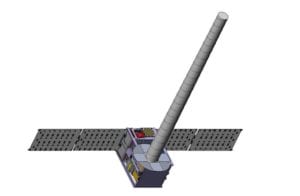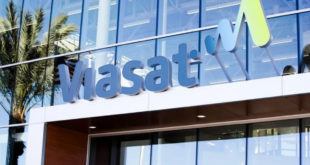
Small satellite manufacturer Blue Canyon Technologies has been selected by Viasat to join its team supporting the U.S. Air Force Research Laboratory Space Vehicles XVI pilot program to test the first-ever Link 16-capable LEO spacecraft. Under the agreement, BCT will design and manufacture a 12U small satellite bus. Viasat is the lead on the design and manufacture of the spacecraft’s payload. Launch of the spacecraft is expected in 2020.
Link 16 is an encrypted radio frequency widely used by the U.S. military and NATO allies to share critical information. Link 16 terminals are deployed aboard aircraft, land vehicles and ships to facilitate the exchange of data and images in standard message formats. The pilot project will test the feasibility of using small satellites in low-Earth orbits to relay more and better information to units in the field.
“Blue Canyon Technologies is honoured to support Viasat in this important pilot project,” said George Stafford, CEO and president of Blue Canyon Technologies. “To date, Link 16 technology has only been capable of line-of-sight communications. By demonstrating that Link 16 can operate in a space environment on small satellites, the U.S. military can gain beyond-line-of-sight tactical advantages on the battlefield and ultimately keep our troops safer.”
“Viasat is thrilled to have Blue Canyon Technologies supporting the XVI program,” said Ken Peterman, president, Government Systems, Viasat. “This Link 16-capable Low Earth Orbit spacecraft will address the Department of Defense’s urgent need for a fast-to-market, cost-effective, space-based Link 16 solution to maintain the technological edge needed in contested environments.”
The 12U spacecraft uses BCT’s heritage XB1 avionics to provide a state-of-the-art satellite platform that maximizes payload volume. The spacecraft includes ultra-high-performance pointing accuracy, a robust power system, command and data handling, RF communications, and dedicated payload interfaces. The spacecraft bus will be developed and tested at BCT’s Spacecraft Manufacturing Center in Colorado. Integration of the bus and payload will occur at Viasat’s Tempe, Arizona facility.
BCT is currently building more than 60 spacecraft for government, commercial and academic missions. The company has doubled in size over the past 12 months and plans to open its new 80,000-square-foot headquarters and production facility in 2020.
 SpaceWatch.Global An independent perspective on space
SpaceWatch.Global An independent perspective on space



